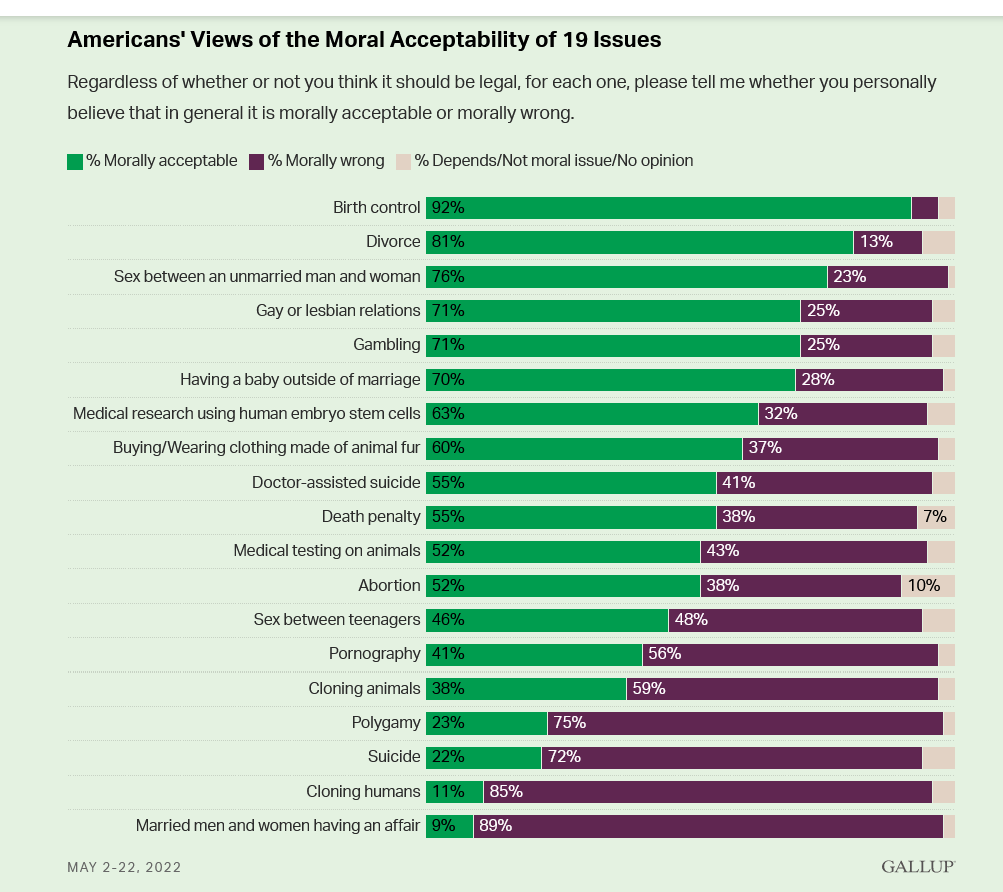6 Comparing Moral Codes
Greg Hartley
Life is full of choices, but one of the hardest is when we have to choose between standing up for what we believe in and giving way to social pressure. This can especially be difficult when we’re not sure what’s right! We see this playing out today through protests, politics, and other morally charged social situations. Psychologists call this the FIGHT or FLIGHT response. Part two of this textbook explores this space: the difference between going with the flow and taking a stand!

Maybe your mama always taught you to do what’s right. Or maybe you just always trust your gut instincts in moments of stress. Perhaps you had an excellent role model growing up. Or maybe you gathered spiritual wisdom from a collection of sacred writings. However you gained your moral standards, you certainly have them now. But sometimes they aren’t always clear.
Moral codes provide a system for determining the difference between right and wrong. Morality varies from person to person and from culture to culture, but everyone has beliefs they will defend. Occasionally, social situations will challenge one of our strongly held moral standards. These are moments of intense internal conflict that can permanently alter how we live and think. All of the authors in this section reflect on a moment in which they felt challenged to take a stand. They describe the pressure to either submit and give up a moral standard or to take a stand and risk social disgrace—or worse.
A Personal Code
Everyone must navigate what they think is right or wrong. This is how we get along together. Morality is your code of what defines right and wrong, good from evil. Scholars, philosophers, and theologians have debated what ideas should and should be present in our moral codes for centuries, but have you ever considered your own morality? Consider the chart below:

Examine the issues listed in the chart. You may find some surprises, or you may discover you agree with most of the answers. This is a good chance to consider where you stand on each issue and how strong your stance would be.
From Morality to Ethics
Knowing what you believe comes with an advantage. Known beliefs can be practiced consciously. Believing that an action is right or wrong lets you take a stand for it when that belief gets challenged. Knowing your beliefs also lets you live out your beliefs with consistency. As society has become increasingly intolerant of hypocrisy, it has become more important to keep beliefs aligned with behavior. This practice of living out one’s beliefs is called ethics. Those with a high level of agreement between their beliefs and their behaviors possess integrity, one of the most highly valued of all character traits.[1] So the path to leading an honorable, consistent life depends on knowing your personal beliefs, practicing them, and defending them!
- Huberts, Leo WJC. "Integrity: What it is and Why it is Important." Public Integrity 20.sup1 (2018): S18-S32. ↵
When actions do not align with beliefs.
The application of morality through behavior.
Consistency between beliefs and actions.

